Oscar Vault Monday – The Elephant Man, 1980 (dir. David Lynch)
After Eraserhead, Lynch was eager to get started on a new project. After failing to get anything started on a personal project called Ronnie Rocket, he called Stuart Cornfeld – who had earlier called him to tell him how much he had enjoyed Eraserhead – and asked him if he had anything. Cornfeld said he had four projects. The first one he mentioned was called The Elephant Man; without knowing anything else Lynch said that was it. They pitched it around to several studios before Mel Brooks (for whom Cornfeld worked) decided (with some influence by his wife Anne Bancroft) it was right for his new BrooksFilms production company. He liked the screenwriters, but he didn’t know who Lynch was, so they screened Eraserhead for him. After it was over Brooks reportedly said to Lynch, “You’re a madman! I love you! You’re in!” The rest, as they say, is history. The film was nominated for eight Academy Awards, though it didn’t win any: Best Original Score, Best Art Direction, Best Film Editing, Best Costume Design, Best Adapted Screenplay, Best Actor John Hurt, Best Director and Best Picture. Lynch was saddened that the film didn’t receive sound or cinematography nominations. The year prior, sound designer Alan Splet received an honorary award for his sound work on The Black Stallion and a few years later he received a nomination for his work on 1983’s Never Cry Wolf. Cinematographer Freddie Francis won in 1960 for Sons and Lovers and in 1989 for Glory. The other films nominated for Best Picture that year were: Coal Miner’s Daughter, Raging Bull, Tess and winner Ordinary People. After the film’s loss at the Oscars, Brooks reportedly stated, “Ten years from now Ordinary People will be the answer to a trivia question. The Elephant Man will be a movie people are watching.” The film currently sits at #116 on IMDb’s user-generated Top 250.
I wrote quite a bit about David Lynch here a few years back. As a reminder, he has been nominated for four Academy Awards: Best Director/Screenplay for The Elephant Man and Best Director for Blue Velvet and Mulholland Dr. Currently, The Elephant Man is the only one of his films to receive a Best Picture or Best Screenplay nomination. I really love David Lynch. I’m reading his book Lynch on Lynch right now and it is phenomenal Definitely recommend it to any and everyone. I want to point out that writing about this film is hard in a way because, like Eraserhead, it’s not really just a visual film. The sound design of both films are so integral to the story, it’s really a shame you can’t hear it playing right now as you read. Go back and re-watch this film and listen really carefully to the ambient sound throughout the film. It’s not like any other film I can think of; such a shame the Academy didn’t realize that when they were handing out nominations.
The film opens with a close up on the eyes of Phoebe Nicholls as Mary Jane Merrick, the mother of John Merrick, the “elephant” man. His mother, in more ways than one, will have the greatest impact on Merrick’s life.
This begins a dreamlike sequence wherein Merrick is assaulted by an elephant. This seems fantastical, but in the real life story of John Merrick, his family claimed that the reason for his disfigurement (which didn’t show until he was about five) was due to his mother being attacked by an elephant early on in her pregnancy. This is due to the idea of maternal impression, which was still widely believed during Victorian England. This opening sequence lets you know you are in a Lynch film and that this isn’t just another stuffy period piece.
I love this close-up establishing shot in the carnival as surgeon Frederick Treves makes his way to get a glimpse of the Elephant Man for the first time. I feel like pretty much all of Lynch films are about those society deems “freaks” in one way or another. What is so great about Lynch is that he embraces this term, much like Tod Browning, director of Freaks, showing that humanity is found everywhere. The term isn’t degrading, nor should it be eschewed altogether. It just is what it is. I think most of his work also shows that everyone, in one way or another, is actually a “freak,” and that the idea of normalcy is absurd.
I’ll start out with Hopkins’ Oscar history: he was nominated for Best Actor three times: The Silence of the Lambs (won), The Remains of the Day, Nixon and Best Supporting Actor once for Amistad. In this film he plays real life surgeon Frederick Treves who was inexplicably drawn to the Elephant Man. Part of this is his curious nature, part of it is his profession. This is a very subtle performance from Hopkins. He allows himself to feel and his eyes to express those feelings, rather than relying on massive dialogue. At one point, after his nurse (played by Wendy Hiller; I’ll talk about her in a bit), claims he has been just as exploitative of Merrick as his previous business partner (read: owner), he asks his wife, “Am I a good man or am I a bad man?” It made me think of that line in this year’s Moonrise Kingdom. After the dog dies and Suzy asks if he was a good dog and Sam replies, “Who’s to say?”
Freddie Jones plays Bytes, who claims to be a business partner with Merrick, but really treats him like property to exploit. However, he really isn’t the “villain” in this film. You see the humanity in him, too. That’s part of why I think this film is so powerful. There are no villains. There is no good and no bad. Just humanity in all its shades.
After Treves “borrows” Merrick from Bytes to examine him, he later presents him to his colleagues. At this point in the film we still haven’t gotten a great look at the “elephant” man. We’ve seen the reactions of those who see him and here we get this amazing Victorian style silhouette but we don’t get a full on glimpse of Merrick.
The reveal comes about thirty minutes into the film, after Merrick has come to stay for good at the hospital. A nurse comes to bring him his breakfast. She’s unsure what to expect, and even though she’s prepared herself for something awful, her reaction is everything you would expect it to be. Merrick himself, is embarrassed. What’s so great about it is you can’t tell if he’s embarrassed for himself, or embarrassed that the poor nurse was subjected to such a sight. It’s heartbreaking. The later relationship between the nurses and Merrick highlights one of the film’s messages: that everything is strange and odd until you get to know it, until you get used to it, until you understand it.
Later the head of the hospital Mr. Carr-Gomm, played by Sir John Gielgud, asks why Treves would bring an “incurable” to their hospital. After a brief conversation with Merrick he believes he can only parrot thoughts and phrases that Treves has taught him. Later, he discovers that Merrick has whole sections of the Bible memorized, and is actually an extremely intelligent man. A veteran of the British stage, Gielgud was nominated for Best Supporting Actor for 1964’s Becket and won Best Supporting Actor for 1981’s Arthur.
Hannah Gordon plays Treves wife Ann, who invites Merrick – now in a dapper suit – to tea. This scene is so heartbreaking. Ann treats him as she would any other gentleman, looking him in the eyes and everything. Merrick becomes overwhelmed because he’s never been treated so nice by a beautiful lady before. This causes Ann to breakdown into tears. It’s a beautiful scene because Ann is crying for the humanity in Merrick that has been ignored and neglected for so many years. But she’s also crying for the humanity that he’s managed to maintain despite the way he’s been treated by others.
Finally, we get to John Hurt, who was previously nominated for Best Supporting Actor for Midnight Express. He lost the Best Actor award for his portrayal of John Merrick to Robert De Niro in Raging Bull. Hurt’s work here is some of the most profound, gentle, sublime acting you will ever see. I’m not sure I could have chosen between these two heavyweights come Oscar voting time; you could not ask for two more dissimilar performances. The makeup on Hurt was developed by Christopher Tucker, after a failed attempt by Lynch. It was developed by using the actual moldings of Merrick taken by the Royal London Hospital, thus it is as accurate as possible. If you know your Oscar history, then you know up to this point there was no Best Makeup category (which is why The Red Shoes didn’t win it!) and only two makeup artists received special achievement awards (William J. Tuttle for 7 Faces of Dr. Lao and John Chambers for Planet of the Apes). After this film failed to even receive an honorary award, there was such outcry that the Academy created the category the next year. Rick Baker, who holds the record with seven awards and eleven nominations, won the inaugural year for his work on An American Werewolf in London.
Anne Bancroft was a champion of this project from early on during its production and later her name was used in the marketing (she gets second billing) even though she is most definitely a supporting player. She plays real life Victorian stage actress Dame Madge Kendall, who reads of Merrick and, much like Treves, feels drawn towards him. The two share a beautiful moment where after reciting lines from Shakespeare to each other, she says to Merrick, “You’re no elephant man. You’re Romeo!” Bancroft was nominated for Best Actress five times: The Miracle Worker (won), The Pumpkin Eater, The Graduate, The Turning Point and Agnes of God.
I love Wendy Hiller. She was nominated for Best Actress for 1938’s Pygmalion and won Best Supporting Actress for 1958’s Separate Tables. She plays head nurse Mrs. Mothershead, who will take no nonsense from anyone. But her hard as nails exterior does not mean she feels nothing; she eventually cares deeply for Merrick’s wellbeing and calls Treves out on his bullshit. Hiller supposedly said to Lynch on the first day of filming, “I don’t know you! I’ll be watching you and we’ll see!” Haha. Perfect.
Like Eraserhead, The Elephant Man takes places in an industrial society. Although Lynch’s first film could take place anywhere or any time, this film most definitely takes place during the Industrial Revolution in England. In an early scene in the film, Treves is operating on a worker who was badly injured by a machine and he says, “Abominable things, these machines; you can’t reason with them.” Again, you see the theme of humanity. Also, the ambient sound I mentioned earlier is mostly these industrialized machines. Their sound is omnipresent in the film. In Lynch of Lynch, he discusses all the smokestacks and industrialization, saying, “Human beings are like little factories. They turn out so many little products. The idea of something growing inside, and all these fluids, and timings and changes, and all these chemicals somehow capturing life, and coming out and splitting off and turning into another thing. . .it’s unbelievable.”
Which brings us to the most famous sequence in the film, where Merrick, who has escaped from Byte who took him to Europe and made his way back to England, gets chased by men and surrounded. He yells, “I am not an elephant! I am not an animal! I am a human being! I am a man!” before collapsing. It’s a powerful sequence and pretty much hits the message of the film on home. It’s after this sequence that Treves apologizes to Merrick for all he’s done to him, but Merrick says he is grateful. He says, “My life is full because I know I am loved.” At this point if you are not crying maybe you aren’t human.
The final moments of the films show us a special evening at the theatre arranged by Dame Kendall for Merrick, who we now know is dying of chronic obstructive pulmonary disease. It’s another sequence that let’s you know you are watching a film by David Lynch. But, if you actually look at the theatre (and costumes!) that people in the Victorian era wore, it’s not all that surprising that Lynch was drawn to a film set in this era. It was a pretty Lynchian era in and of itself, really.
The film ends, as it began, with a vision of Merrick’s mother. He is dying and is comforted with the thought of being reunited with the woman who gave him life and he is at peace. It’s perfect ending for a perfect film. Apparently, from the get go Lynch wanted to use Adagio for Strings by Samuel Barber, even though composer John Morris (who received an Oscar nomination for his score) had composed music for the final sequence. Lynch screened the film for Brooks with both pieces of music. Brooks agreed that Adagio for Strings, “worked better for the picture.” Lynch showed that version first and says, rather cheekily, that you should always show the version you want first. Sage advice. I’ll end this piece with the end of the film, which is one of the greatest final scenes ever as far as I’m concerned.
Posted on December 10, 2012, in Oscar Vault Monday and tagged 1980, Anne Bancroft, Anthony Hopkins, David Lynch, Freddie Jones, Hannah Gordon, John Gielgud, John Hurt, Mel Brooks, Phoebe Nicholls, The Elephant Man, Wendy Hiller. Bookmark the permalink. 4 Comments.






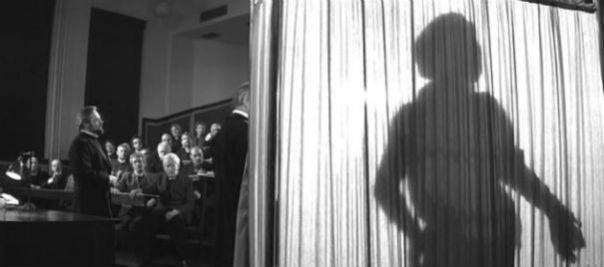












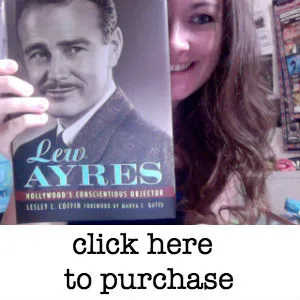

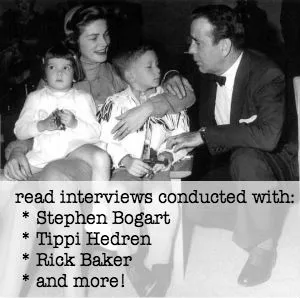
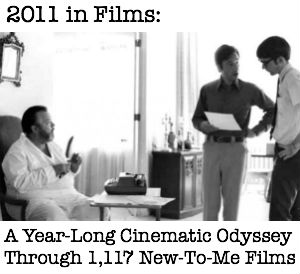
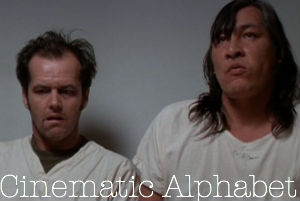

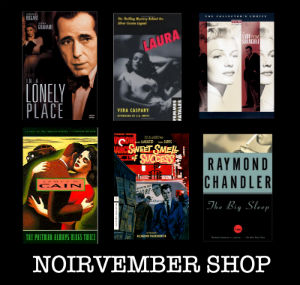
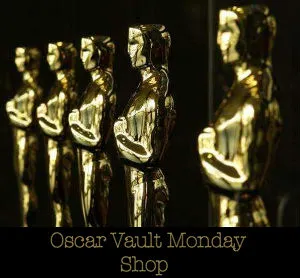







I saw this movie for the first time back in June. It’s a lovely movie and this is a lovely tribute. I got teary eyed reading it. Well-done, cheers!
Reblogged this on Memoirs of a Mangy Loner and commented:
If you’ve seen the movie you’ll learn a lot about the production and you’ll feel like you’re seeing it again. If you haven’t seen the movie, you’ll want to see the movie after reading this.
Pingback: Mel Brooks: Make A Noise | the diary of a film history fanatic
Pingback: TCM Picks of the Week | Memoirs of a Mangy Loner